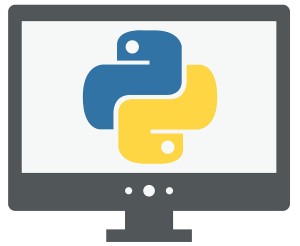Google Has a New Secret Recruiting Tool

It’s actually a fairly devious plan that only Google could devise. People who search for a specific programming language are invited to apply.
According to The Daily Dot, “When you’re Google — and you have a near-endless amount of resources and creativity — a simple ‘We’re Hiring!’ sign simply doesn’t cut it. So what does such a company do when it needs to find new talent with a knowledge of the Python programming language? You wait until they visit your search engine and then entice them with a mysterious secret test, of course!”
Basically, the website says, “Over the past few days, programmers searching for Python-related queries via Google have found that their searches have not gone unnoticed. ‘I was Googling some Python topic when my search results page suddenly split in the middle with some text saying something to the effect of ‘You speak our language, would you like to take a test?’ a Hacker News post reads. ‘I followed it and was led to a pseudo-shell, where I then found some coding problems. I can return to the page to continue working on them.’”
Before we go any further, let’s take a moment to explain what Python is. This explanation comes via Python.org : “Python is an interpreted, object-oriented, high-level programming language with dynamic semantics. Its high-level built-in data structures, combined with dynamic typing and dynamic binding, make it very attractive for Rapid Application Development, as well as for use as a scripting or glue language to connect existing components together.
“Python’s simple, easy-to-learn syntax emphasizes readability and therefore reduces the cost of program maintenance. Python supports modules and packages, which encourages program modularity and code reuse. The Python interpreter and the extensive standard library are available in source or binary form without charge for all major platforms, and can be freely distributed,” the site says.
Business Insider Australia reports, “Commenters have reported that searching for terms like ‘python lambda syntax’ and ‘mutex lock’ brings up an invite to compete some challenge questions.” It adds, “The consensus on the Hacker News message board is that Google has keyword matching for search queries for users who have their search history turned on that will trigger invitation. Developers who elect to go through the challenges, described as ‘fun puzzles’ by one commenter, may get contacted by Google.”
Google, just like other employers, is having trouble finding good Python programmers, but it may not take much training to become one. “There are people out there who work a 9-to-5 job who are maybe called analyst but maybe are [one] course away from being an open source developer. They may have awesome Microsoft Access skills or they understand a little bit of programming, but they need that next step to push them,” Calvin Hendryx-Parker told the Indianapolis Star. Hendryx-Parker is co-owner and chief technology officer of Six Feet Up, a growing company that does large-scale website deployments.
The Daily Dot observes, “The really interesting thing here is that if Foobar is indeed a tool to recruit programmers into the Google fold, as it appears to be, Google is targeting those who are searching for Python-related terms. It also shows that the company has no problem making it abundantly clear that it can and will keep a close eye on your search history for its own purposes.”

